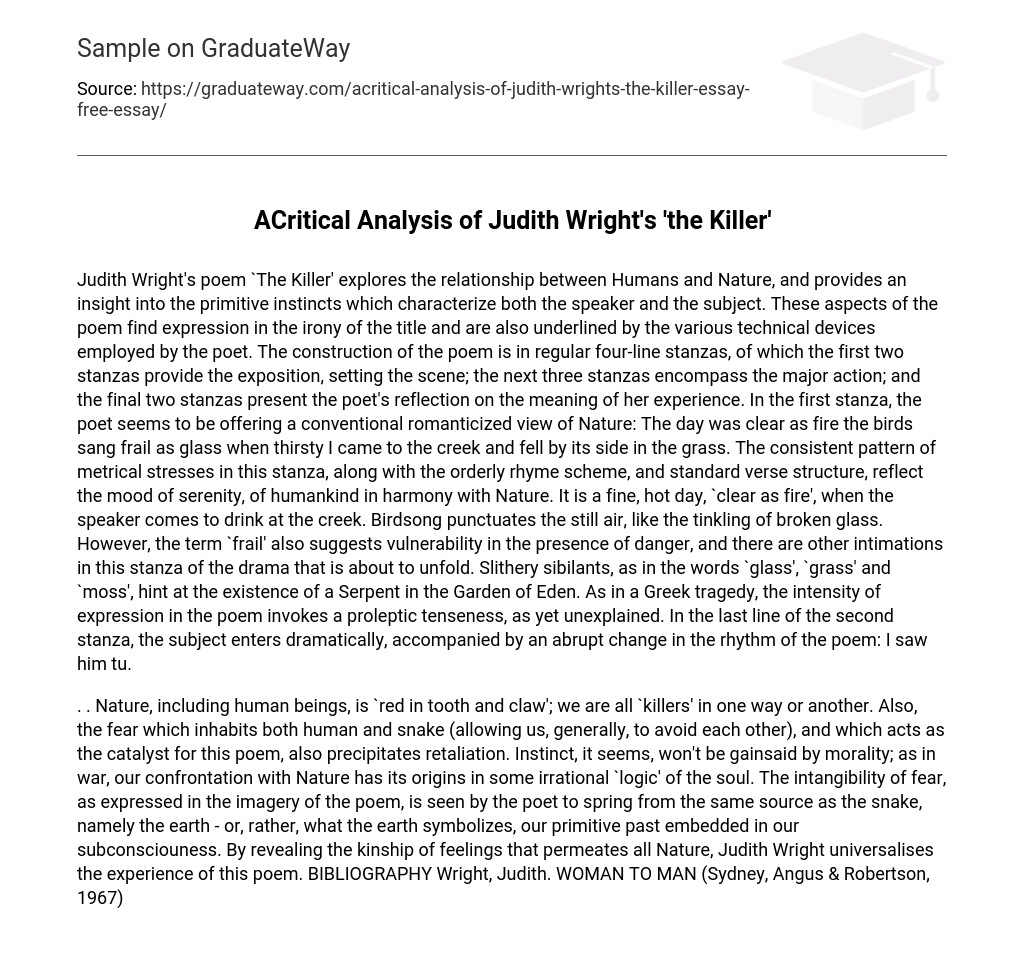The title of Judith Wright’s poem, ‘The Killer’, embodies the exploration of the relationship between Humans and Nature and reveals the primitive instincts shared by both the speaker and the subject. The poem’s technical devices, such as its regular four-line stanzas, further emphasize these aspects. The first two stanzas serve as an exposition, setting the scene. The subsequent three stanzas depict the main action, while the final two stanzas offer the poet’s reflections on the experience’s significance.
In the opening stanza, the poet initially presents a conventional romanticized perception of Nature: “The day was clear as fire, the birds sang frail as glass when thirsty I came to the creek and fell by its side in the grass.” This stanza’s consistent metrical stresses, orderly rhyme scheme, and traditional verse structure reflect a serene mood, portraying humans in harmony with Nature. The speaker arrives at the creek on a beautiful, hot day, described as “clear as fire.” The birds’ delicate singing adds to the tranquility, resembling the sound of fragile glass. However, within this seemingly serene scene, there are hints of vulnerability and impending danger. The presence of hissing sounds in words like “glass,” “grass,” and “moss” suggests that a serpent may be lurking in this metaphorical Garden of Eden.Similar to a Greek tragedy, the poem possesses a heightened emotional quality that creates a sense of anticipation. This tension is not yet clarified. In the final line of the second stanza, the subject makes a powerful entrance, accompanied by a sudden shift in the poem’s rhythm: I witnessed him suddenly entering.
Nature, including humans, is filled with violence and aggression. We all have a tendency to harm others in some way. The fear that both humans and snakes possess causes us to avoid each other, but it also leads to retaliation. Instinct overrides morality, just like in war. Our struggle with nature originates from some illogical aspect of the soul. The intangibility of fear, depicted in the poem, is believed by the poet to come from the same source as the snake – the earth. The earth symbolizes our primitive past embedded in our subconsciousness. By showing the interconnectedness of emotions throughout nature, Judith Wright makes this poem a universal experience. BIBLIOGRAPHY Wright, Judith. WOMAN TO MAN (Sydney, Angus & Robertson, 1967)





